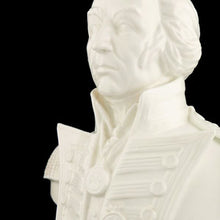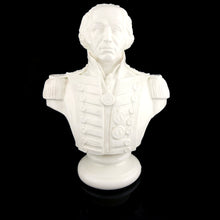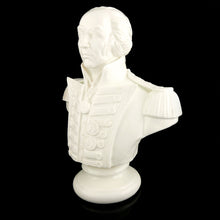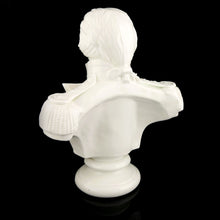Bust of Vice-Admiral Lord Cuthbert Collingwood, 1991
- Regular price
- £875
- Sale price
- £875
- Regular price
-
- Unit price
- /per
Adding product to your cart
Height: 26.5cm (10.2in)
Glazed bone china. A 20th century Trafalgar series bust of Admiral Lord Collingwood, Nelson’s second in command and the commander of the lee column at Trafalgar on 21 October 1805. A polychromed version of the present Sutty bust was owned by Baroness Thatcher.
Read more
Nelson's great friend and deputy, Cuthbert Collingwood (1750-1810) went to sea at the age of eleven. He was a midshipman for almost fifteen years, and served in the War of American Independence (including the Battle of Bunker Hill). He was captain of HMS Barfleur at the Glorious First of June, served at St. Vincent in HMS Excellent, and became vice-admiral in 1799. At Trafalgar he commanded the lee columns of attack in HMS Royal Sovereign, and succeeded to command of the fleet after Nelson's death. Ennobled and appointed to command in the Mediterranean, he remained on that service until his death aboard HMS Ville de Paris on 7 March 1810, off Port Mahon, despite requests that he return home on grounds of ill-health; but on being told that he was needed he 'said that he never in his life had declined a call'.' A skilled seaman, he was universally liked and admired for his abilities, kindness, and good humour. However he believed it was every Briton’s duty to hate the French. Although lamenting the long separations from his family, he always put duty first; and when at home would walk around his native Northumberland with pocketsful of acorns, which he planted at every suitable place, to ensure a supply of oak for the next-but-several generations of warships.








